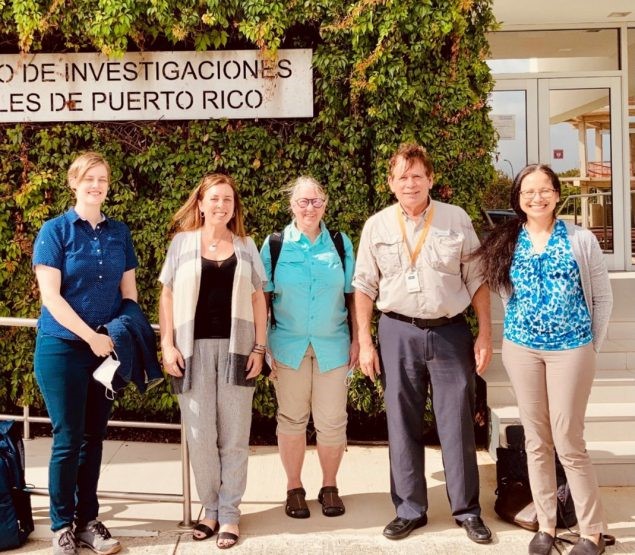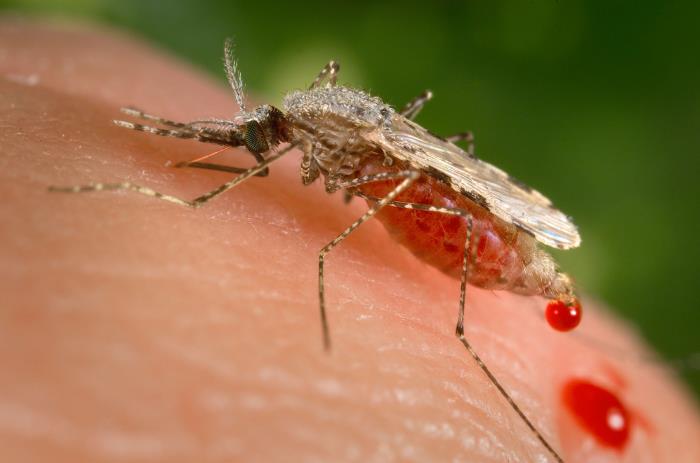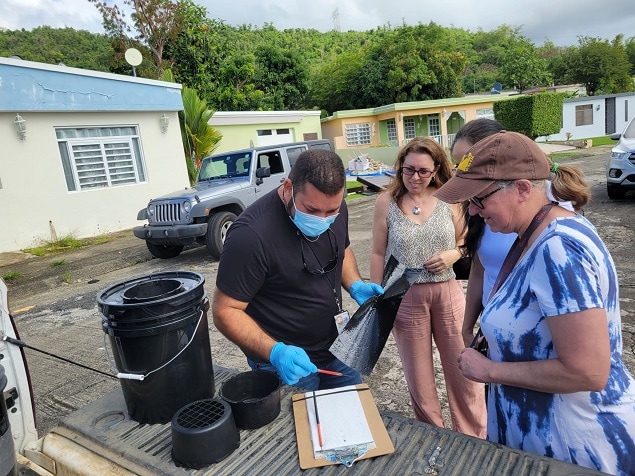World Mosquito Day 2022: CDC Experts Collaborate to Support Global Partners on Mosquito Control

Nicole Dzuris, Audrey Lenhart, Janet McAllister, and Anna Drexler visited the Puerto Rico Vector Control Unit facilities with the executive director, Grayson Brown
Global control efforts of mosquito-borne diseases require multi sectorial and international collaboration. Mosquitoes remain the world’s deadliest animals, since they are the spreaders of diseases like malaria, dengue, and Zika.

Anopheles stephensi mosquito, which is becoming an invasive species in Africa. Studying how this mosquito behaves is one way CDC entomologists support global vector surveillance and control.
The global 2016 Zika epidemic highlighted the challenges many countries face in gathering data, communicating, and providing a timely response to mosquito-borne diseases. In addition, malaria causes more than 600,000 deaths every year.
These challenges led to the development of the VecNet program which aims to reduce the burden of vector-borne diseases. Experts working as part of VecNet improve regional entomology networks’ capacity to properly monitor and control insects of public health importance. VecNet currently supports networks in the Caribbean, Pacific, Central America, West Africa, Southeast Asia, and Horn of Africa regions.
VecNet is co-implemented by CDC’s Center for Global Health (CGH) and National Center for Emerging and Zoonotic Infectious Diseases (NCEZID).

A field technician from CDC’s Dengue Branch in Caguas, Puerto Rico demonstrates how to count female Aedes aegypti in Autocidal Gravid Ovitraps (Photo credit: Liliana Sánchez-Gonzalez, CDC)
During the first week of March 2022, members of the VecNet Steering Committee visited Puerto Rico to review the progress of the first year of VecNet and plan for short- and longer-term goals.
“There are only a handful entomologists at CDC, and VecNet has allowed us to maximize CDC’s expertise in this area to support global vector surveillance and control capacity,” says Audrey Lenhart, Chief of CDC’s Entomology Branch within the Division of Parasitic Diseases and Malaria. “VecNet is a prime example of a technical collaboration that is significantly stronger due to its cross-center participation.”
Today, CDC joins partners around the world in raising awareness about mosquitoes.
Share our World Mosquito Day features:
- CDC Global Health Feature
- Photo essay
- PMI: U.S. President’s Malaria Initiative
Helping families sleep safer around the globe - Social media cards about mosquitoes
- @CDCGlobal on Twitter
- CDC Global on Facebook
- CDC Global Health on Instagram